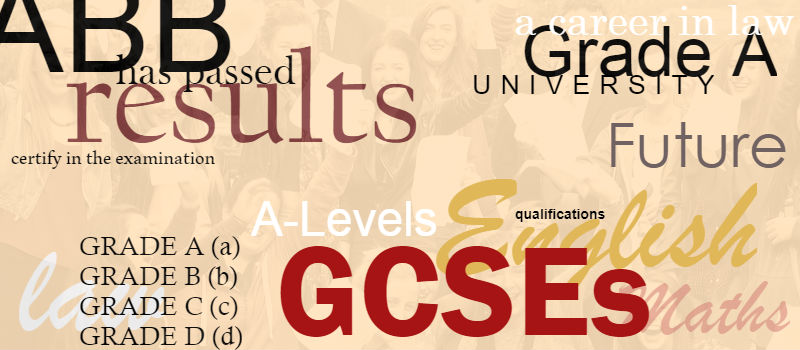
Tomorrow many young aspiring adults will be queuing up to get their GCSE results. For those who are looking to continue their educational careers into sixth form and eventually university, you will need to pick courses to study for your A-Levels.
Choosing your A-Levels
To help you decide what A-Level courses to study, you should first have an idea of what career you want for your future. We know that deciding a career at a young age is difficult, especially when you are making a decision on something you have little or no experience with. All we can say is, don’t worry if you haven’t got a career path in mind. Career paths and opportunities change for most people throughout their lifetime. If you still haven’t made a decision on what sort of career you want, then why not consider law and the legal industry?
What is good about a law career?
- A respected career
- Can command a good to high salary
- Can make a positive difference to people’s lives
- Plentiful job opportunities
- Fast-paced and challenging
- Diverse subjects that includes personal injury, family law, criminal law, conveyancing and more
You can read more about whether a career in law will suit you.
Entry requirements from universities for law
For GCSEs, most universities in England will expect you to have a Grade C at GCSE English and Maths.
For A-Levels, most universities in England do not specify any required subjects for A-Levels; the exception being many do not accept General Studies and Critical Studies. Most universities require that you achieve between a minimum of BBC to AAA for your A-Levels.
It is recommended that you do some research into different universities and their undergraduate requirements for law as every university has different requirements and offers.
Here are a few university undergraduate law courses for 2017 that you may be interested in:
